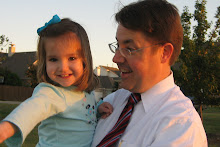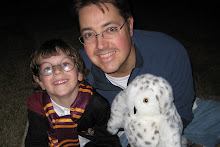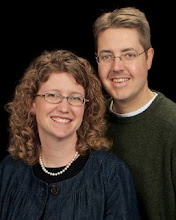For a while after Steve passed away, I sort of felt like nothing bad could happen ever again to anyone we know and love. As if somehow Steve's illness, suffering and death would fulfill some unspoken quota.
It's not logical or theologically sound, I realize. And certainly reality hit soon after.
Every few months in the past five years, someone we know, someone we love has been diagnosed with a grave illness or died unexpectedly or suffered severe trauma or experienced an enormous loss (of a loved one or a job or a relationship).
Life and death go on.
Jason Dugger, a former colleague at the Dallas Morning News, died unexpectedly last week, leaving behind his wife and two young sons.
Alex Podeszwa, teenage son of one of Steve's fraternity brothers, passed away last week, after living with neuroblastoma for nine years. (Alex's dad, Dave, introduced Cooper and Katie to the fine art of hospital bed rides way back in 2007, when Steve was first hospitalized. The Podeszwas were instrumental in helping us navigate the cancer world.)
Maureen McClendon, mom of three children including my high school friend Angela, died last week, four months after first showing signs of what would be identified as a glioblastoma. She was 76 and still working full time as senior research analyst at the time of her diagnosis.
On Saturday, Sept. 6, my dear friend Melissa and I spent an evening with Maureen and her children.
Maureen and I held hands, and she asked me questions about Steve. She wanted to know about his course of treatment, how long he lived after diagnosis. They were difficult questions to answer, not because I have trouble talking about Steve but because I wanted to protect Maureen, whose health was so quickly demolished by one of the very worst tumors.
I shared some of his experience. I listened as she talked about her recent travels to Europe and Hawaii, about her role in a national insurance organization, about photos and cards on the kitchen table.
Later in the evening, she looked at me and told me she was sorry for my loss. All my strength dissipated. We held each other and sobbed. I cried for Steve and Maureen and for everyone in between who has suffered brain cancer, neuroblastoma, aneurism, stroke. This list is too long.
Maureen sent me home with a gift. A pair of bedazzled eyeglasses, slightly broken but fixable, in case I wanted to switch out her lenses for my own.
For now, her frames sit on my dresser, a small reminder of our fragility and our connectedness, of the importance of holding hands and sharing stories while we can.
Monday, September 15, 2014
Saturday, September 6, 2014
A heart still broken, yet blessedly full
My column from today's Briefing:
I love you. Thank you.
Those were the final words from my beloved husband.
He couldn’t speak them — his body was shutting down — but he desperately wanted to. My sister hastily wrote the alphabet. After Z was scribbled, he began pointing to letters to form those final phrases.
I’ve carried those simple, powerful words in my heart for five years — somehow, at once, the most excruciatingly slow and exceedingly brisk years possible.
Five years a widow. Five years a single parent to two children who understand their loss in ever-evolving fashion. Five years without Steve.
My heart is somehow still frightfully broken yet blessedly full.
My grief is more contained, less obvious. More controlled, less needling. Grief is no longer my constant companion, though I can’t imagine life without it.
I have to guard against too much “life without” thinking — life for Cooper and Katie without their daddy, life without the man I married 20 years ago, life without a second adult in the house to help with chores, bill-paying and parenting.
Instead, we try to embrace the life we’ve got.
I sometimes joke about my expertise, reluctantly earned over the past few, unexpected years.
Before cancer disrupted our lives, I was a reliable source of facts and opinions on car seats, accredited daycare centers, homemade baby food, the best picture books for toddlers and hidden family adventures in Dallas-Fort Worth.
Now I can answer questions about brain cancer, patient advocacy, hospice care, second opinions, how to prepare children for a death and multilayered approaches to handling grief.
Good gracious, I preferred the former.
We don’t get a choice, though. So I’ve tried to recognize the silver linings, wherever they’re found, and to share what our family learned through Steve’s illness and death.
We honor Steve’s memory as often as we can. His photos are still in our home.
We tell Steve stories — how he would randomly break out his German accent at dinner, how he liked to dance to Jane’s Addiction while washing dishes, how he would hide the kids’ blankets in his shirt at bedtime and pretend he couldn’t find them. (That stunt earned sleepy giggles every single time.)
Almost every Sunday morning, we park on the north side of our church, as near as possible to the stone bench installed in Steve’s memory, marked with his name and favorite Scripture. Cooper and Katie sit on the bench, and I take photos.
We look forward to his birthday, a day that we’ve turned into a worldwide celebration. We invite friends — who invite their friends — to perform acts of kindness in Steve’s memory. Thanks to all those folks and the power of social media, thousands of people all over the globe have received special surprises on the fourth day of November.
I’m giddy just thinking about it.
Five years ago I couldn’t imagine that I would ever feel giddy again. Yet in that time we’ve moved forward — and with growth comes joy.
We’ve forged new relationships. (In 2009, I couldn’t imagine making new friends. Who would want to be friends with such a messy mess? And how would they ever understand me if they didn’t know Steve?)
Cooper and Katie continue to mature, to tackle new challenges, to express themselves with clarity and eloquence. (In 2009, I wonder if Steve could have envisioned his son as a clarinetist and his daughter as a violinist. Could he know how witty Cooper would become? How poetic Katie would become?)
Together the three of us have traveled, gotten lost and found our way back. We’ve attacked home repair projects and experimented with new recipes. We’ve read classic novels together. We’ve danced in the kitchen while washing dishes. (Though never exactly re-creating Steve’s smooth moves.)
Each of us understands the value of the life we get to live. And we try, as often as we can, to repeat those most simple, significant words.
Thank you. I love you.
Tyra Damm is a Briefing columnist. Email her at tyradamm@gmail.com.
Subscribe to:
Posts (Atom)




